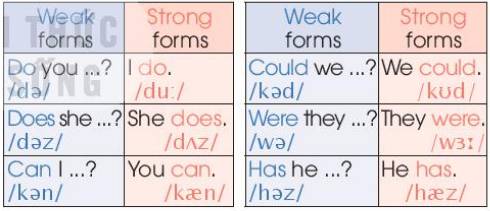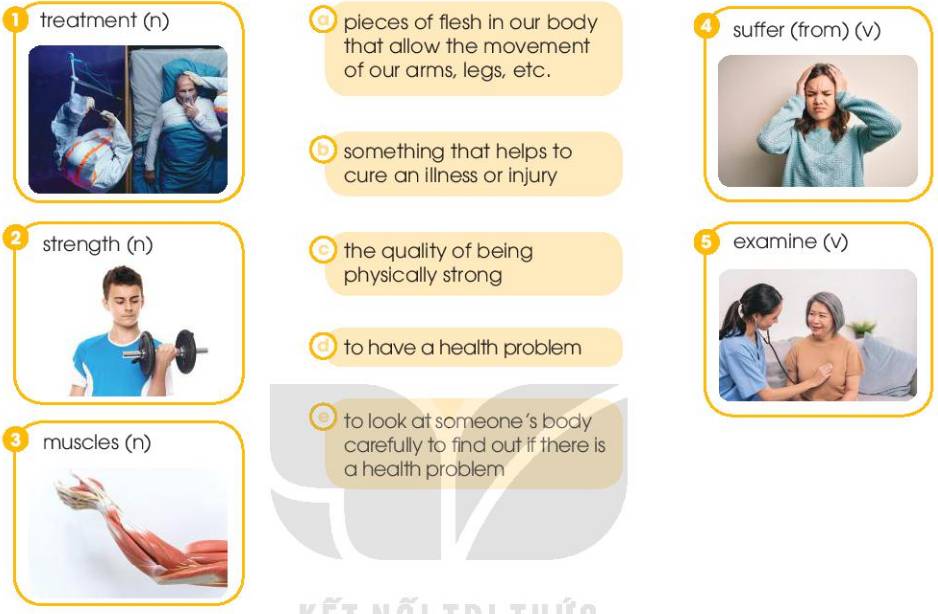Gợi ý:
I have exercised regularly for a year. I went swimming last weekend.
Gợi ý:
I have exercised regularly for a year. I went swimming last weekend.
Work in pairs. Read these sentences out loud. Pay attention to the strong and weak forms of the auxiliary verbs. Then listen and check.
1. Does she exercise? - Yes, she does.
2. Were you eating healthily? - Yes, I was.
3. Do you eat vegetables? - Yes, I do.
4. Can he get up early? - Yes, he can.
Put the verbs in brackets in either the past simple or the present perfect.
1. He (see)______ the doctor yesterday.
2. She (suffer)________ from a serious headache, but after treatment, she felt better.
3. Our living conditions (improve)______ over the last few decades. Now people live much better.
4. The doctor (just, examine) __________ her. Fortunately, the treatment is working.
Listen and repeat. Pay attention to the strong and weak forms of the auxiliary verbs. Then practise saying them.

Mark: Have you started working out again?
/hǝv/
Nam: Yes, I have.
/hæv/
Mark: Was it your grandfather who taught you?
/wəz/
Nam: Yes, it was.
/wɒz/
Complete the following sentences using the correct forms of the words in 1.
1.The doctor _______ her carefully, but could not find anything wrong.
2. He is receiving ________ for his health problem.
3. Regular exercise can help you improve your muscle _________.
4. To build your __________ you can try lifting weights.
5. Nam can't sleep well. He is ______________ stress.
Match each word (1-5) with its meanings (a-e).
